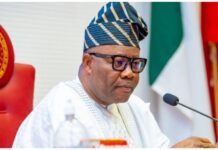In the wake of the recent top-down stress tests of Deposit Money Banks (DMBs) carried out by it, the Central Bank of Nigeria (CBN) reaffirmed that the result of the stress tests revealed that the banks have adequate capital to absorb unexpected losses.
A statement from the Bank at the weekend disclosed that the unaudited results of banks, and the results released so far, indicated that economic headwinds had not significantly affected returns.
The statement further noted that banks have been directed to have effective risk management system in place especially price hedging, adding that the CBN would continue to monitor banks to ensure sufficient internal retention of capital to serve as buffers.
It will be recalled that the International Monetary Fund (IMF), in a Press Release on March 4, 2015, disclosing the outcome of the IMF Executive Board 2014 Article IV Consultation with Nigeria, commended the efforts of the CBN in ensuring financial system soundness.
According to the IMF statement made available to newsmen, “Directors noted that financial soundness indicators remain above prudential norms, but the concentration of credit risks and foreign currency exposures call for continued close oversight. They welcomed progress in strengthening supervision and regulation, including of cross border activities, and encouraged additional initiatives to foster financial market development, including of hedging instruments, and improve financial inclusion.”
The Directors also commended the unification of rDAS and the interbank foreign exchange market rates, noting that greater exchange rate flexibility could help cushion external shocks.
The IMF statement further noted that Nigeria’s economic data are broadly adequate for surveillance, just as it agreed that tightening fiscal policy and allowing the exchange rate to depreciate while using some of the reserve buffer were appropriate responses to the recent fall in global oil prices.



